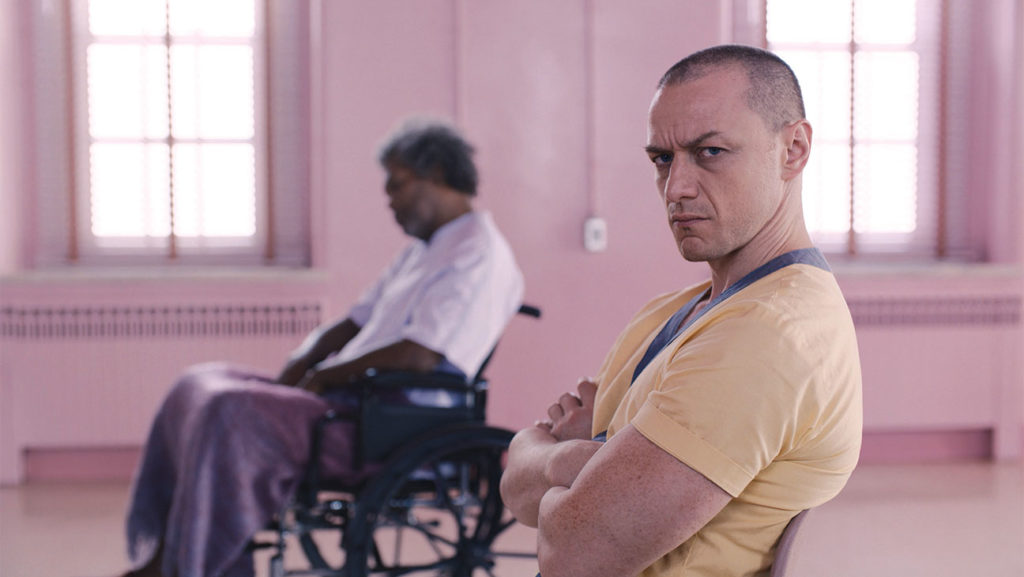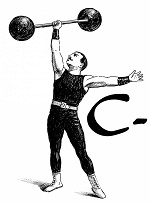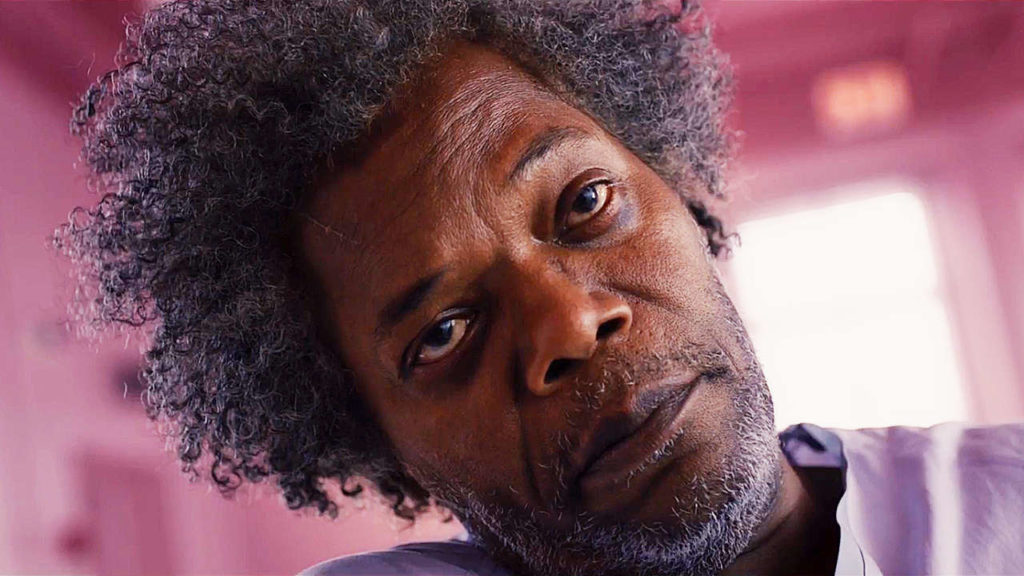“Glass” is the finale to the loose Shyamalan trilogy comprised of 2000’s “Unbreakable” and 2017’s “Split.” Here’s a quick refresher on the earlier two films — “Unbreakable” is the story of ordinary man David Dunn (Bruce Willis) discovering he has acquired superhuman strength, with Elijah Price (Samuel L. Jackson) convincing David that he is equivalent to a comic book hero. “Split” stars James McAvoy as Kevin Wendell Crumb, a man suffering from intensive dissociative identity disorder, and Anya Taylor-Joy as Casey, the teenage girl whom he abducts. The post-credits scene of “Split” shows that Kevin, David and Elijah exist in the same universe, setting us up for a pretty epic showdown.
Fast forward to “Glass.” David and his grown-up son Joseph (Spencer Treat Clark, also reprising his role from “Unbreakable) run a home security store, which is really a front for David to operate as a vigilante around the city. His latest target? The Horde — the nickname given to Kevin and his multiple personalities at the end of “Split.” The Horde has continued the kidnapping spree from “Split,” and David is determined to stop it. David eventually tracks him down and the two duke it out in the street, only to be interrupted by the authorities, who haul them off to the local psychiatric hospital. A heavily-sedated Elijah also happens to be a patient there as well.
“Glass” is a film that promises massive potential. With its dark color scheme and grounded story, “Unbreakable” is a comic book movie that is the refreshing opposite of the Marvel universe. “Split” showcased an absolute tour de force through James McAvoy’s performance of 20+ personalities wrestling for dominance of one mind. Combining these worlds could have allowed for something incredibly.
Instead, “Glass” ultimately falls flat. The first half of the story builds a slow and simmering tension. Our villains and hero are together in one place after all this time. Sarah Paulson’s Ellie Staple, the doctor attempting to treat them, is slowly convincing them these “superhuman” powers they experience are delusions of grandeur. Amidst their treatment, Elijah convinces Kevin’s dangerous half man, half animal personality “The Beast” to team up for a prison break, while taunting David to stop them.
The second half of the film sees little payoff here. The writing is sloppy. David is essentially just a prop in this film. He’s a tool to united The Horde and Elijah in their shared hatred of David, as opposed to a fully-fleshed out character. The third act of the movie is littered with plot holes devoid of proper setup or execution. Shyamalan ends this chapter for our three leads in a way that is deeply unsatisfying and will lead audiences scratching their heads.

For the casual Shyamalan fan, this is one to skip. But diehard fans of the director and the first two films in this trilogy, this one is still worth it. The camera work in this film are mesmerizing. Shyamalan makes the bold decision to employ the frequent use of a handycam and jolting Dutch angles, demonstrating a heightened level of chaos and paranoia to the audience.
If anything, see it for McAvoy’s masterful return as the Horde. It’s frankly hard to put into words just how incredible his performance is here. McAvoy slides seamlessly from personality to personality. Not only does his voice and mannerisms transform for each personality, but even the minute details such as the way he carries himself to the look in his eye subtly change. “Glass” even raises the stakes from “Split” and sees certain members of the Horde actually conversing with one another.
“Glass” leaves things open for another installment in what Shyamalan unofficially dubbed the “Eastrail 177 Trilogy,” but a further continuation in this franchise would just sully the reputations of “Unbreakable” and “Split,” which are two solid and entertaining standalone films. But a prequel focusing on the origin of the Horde? Count me in.
-by Brynne Ramella


